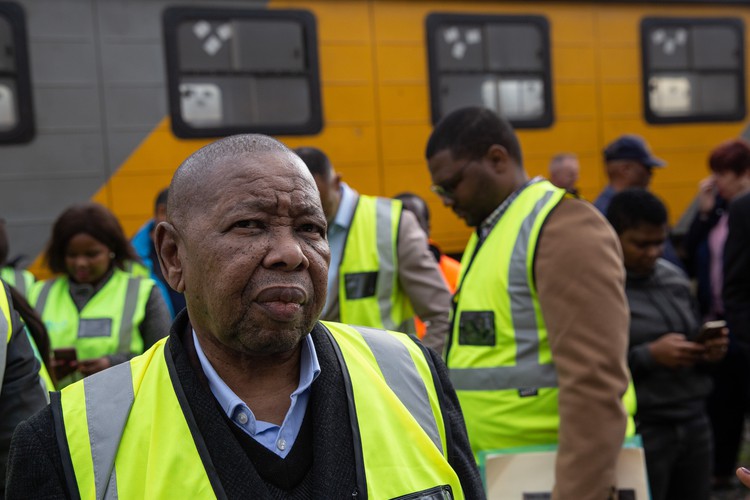

Minister of Transport Blade Nzimande has introduced his “two-stage structure intervention” to address the problems within the Passenger Rail Agency of South Africa. Archive photo: Ashraf Hendricks
11 April 2019
Minister of Transport Blade Nzimande introduced his “two-stage structure intervention” to address the problems within the Passenger Rail Agency of South Africa (PRASA). He briefed the media on Thursday afternoon after meeting with PRASA’s Interim Board.
The Minister said he has been aware of PRASA’s problems since the first few months of his appointment, but it was not until recently that he realized he needed to do something “much more pressing.”
“This is now our department saying, we need to just move closer and be a little bit more hands on with what’s going on in the process,” Nzimande said.
In phase one of his intervention plan, he will appoint a team of experts to spend six to eight weeks analysing PRASA’s structure and functionality. Based on phase one’s outcomes, PRASA will then appoint a turnaround execution team that will work under the direction of the Department of Transport.
“We have not had a close analysis of what problems are at PRASA,” Nzimande said. “They were dealing with corruption, which was correct, but we have not actually looked at PRASA’s functionality.”
Besides investigating the structure of PRASA, the minister also identified the need to improve signalling, corridors, and communication of problems (with commuters and the nation), as well as to deploy more security personnel.
According to Nzimande, 95 new trains will be supplied by August 2020. They will be distributed in Cape Town, eThekwini, and Gauteng. In response to whether it is more rational to fix existing trains rather than dedicate time and resources to new trains, Nzimande said, “It’s not an either-or situation.”
“We have to fix both existing carriages and coaches, while supplying new ones,” he said. “Frankly, some of them need to be grounded because they’re so old. Those that can still be fixed, we are fixing them.”
According to Nzimande, PRASA has more than R20 billion of unspent money on capital expenditure.
“I am confident that with this decisive intervention, we will very soon begin to see changes and improvements,” he said.
With no permanent CEO since 2013 and an Interim Board that has lasted one year, PRASA was supposed to have its senior executives finalised the day before, according to Nzimande. He said the interviewing process “should have started” as applications closed on 28 February, and that they will be vetting employees to “ensure we get the kind of caliber of management that we need”.
Commenting on the suspension of executives, Nzimande said, “The process is that they have been suspended and disciplinary committees and tribunals have been set up. So that as soon as possible they are able to answer for what they have been accused of … I can’t say unfortunately when that should be finished by.”